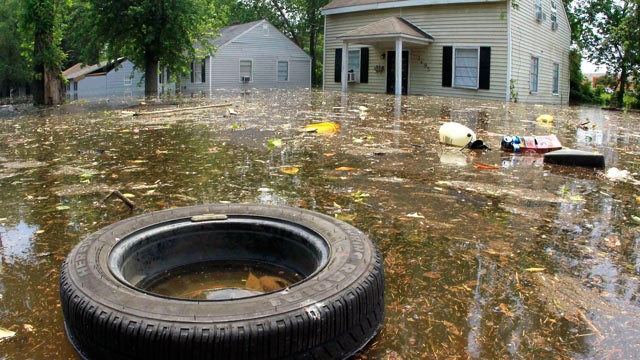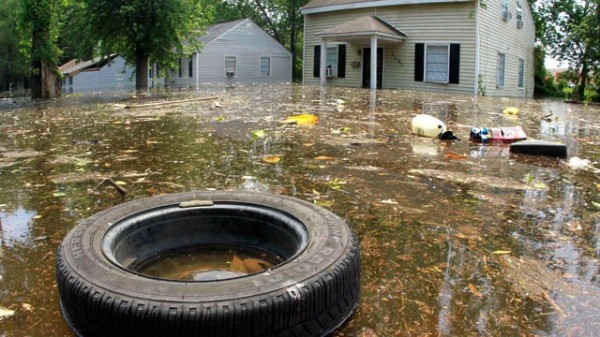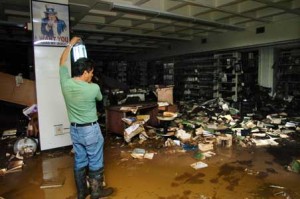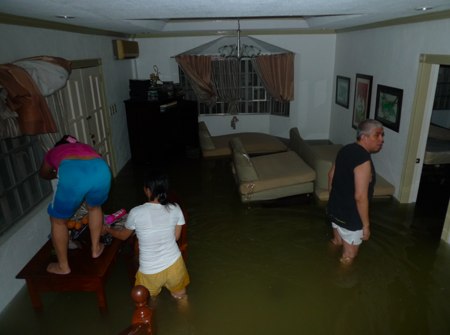Flood cleanup guidelines!

When an area is flooded, there is other damage in addition to just that from the water alone. The high, and sometimes forceful, water brings with it mud, fuel oil, contamination and other toxins. Officials estimate that 120 sewer and treatment facilities have been affected by flood waters in Pennsylvania.
Do not drink tap water until authorized to do so. Once the “all clear” has been given, thoroughly flush your drinking water lines. During the transition, officials may issue a “Boil Water Advisory.” Only venture back into a flooded area after officials deem it to be safe and have lifted restrictions.
Be sure to wear protective clothes, especially waterproof boots, gloves and safety glasses. Have bottled water or beverages on hand to drink. Take a cooler with you filled with ice to keep your food cold. Once you get there, if you smell gas, get out of the house and call the utility company immediately. Propane tanks may have shifted, severing lines.
Natural gas lines could have been damaged in areas where the flood water was forceful, or the furnace may have moved when the water came up, then went down.
Again, do not drink tap water until officials have given the all clear. When the all clear is given, be sure to thoroughly flush tap water lines by leaving them run for a time. Be careful when venturing into your home or business. Animals, such as snakes and rodents, may have been displaced and taken up a new residence.
If the power was cut in your area for more than 24 hours, chances are the food in your refrigerator or freezer has spoiled. Don’t take any chances. The food could have thawed, spoiled and refrozen. Throw it out.
As for the actual cleanup, if any toxins, such as fuel oil, have gotten into clothes, furniture, etc., throw them out. Soap and water will not get rid of the fuel oil smell! If you can’t handle the cleanup on your own, call in professionals.
Remember, mold will quickly grow and spread on surfaces that remain damp, including walls. And If you have allergies or respiratory problems you could be at an even greater risk.
According to Kristi Layland of Disaster Blaster, “Drywall, plaster, carpet, and laminate flooring that got wet should be removed or stripped to the framing to be safe.”
In addition to the removal of porous material, Layland recommended three key factors for mold prevention, which are “Airflow, ventilation and dehumidification.” If you have Ceramic, brick, stone, hardwood and linoleum flooring should be okay, if cleaned thoroughly.
Electrical switches, outlets and main boxes may have been damaged or could still be wet. Don’t venture into any areas, including your basement, where the power is on and water remains. Contact an electrician first.
Thoroughly dry and internally inspect appliances and outlets before attempting to use them. They may be damaged or still wet, and you could be electrocuted.
Appliances that cannot be easily taken apart, cleaned, repaired and reassembled, and are questionable should be thrown out.




Commenting rules and guidelines
We value the thoughts and opinions of our readers and welcome healthy discussions on our website. In order to maintain a respectful and positive community, we ask that all commenters follow these rules.